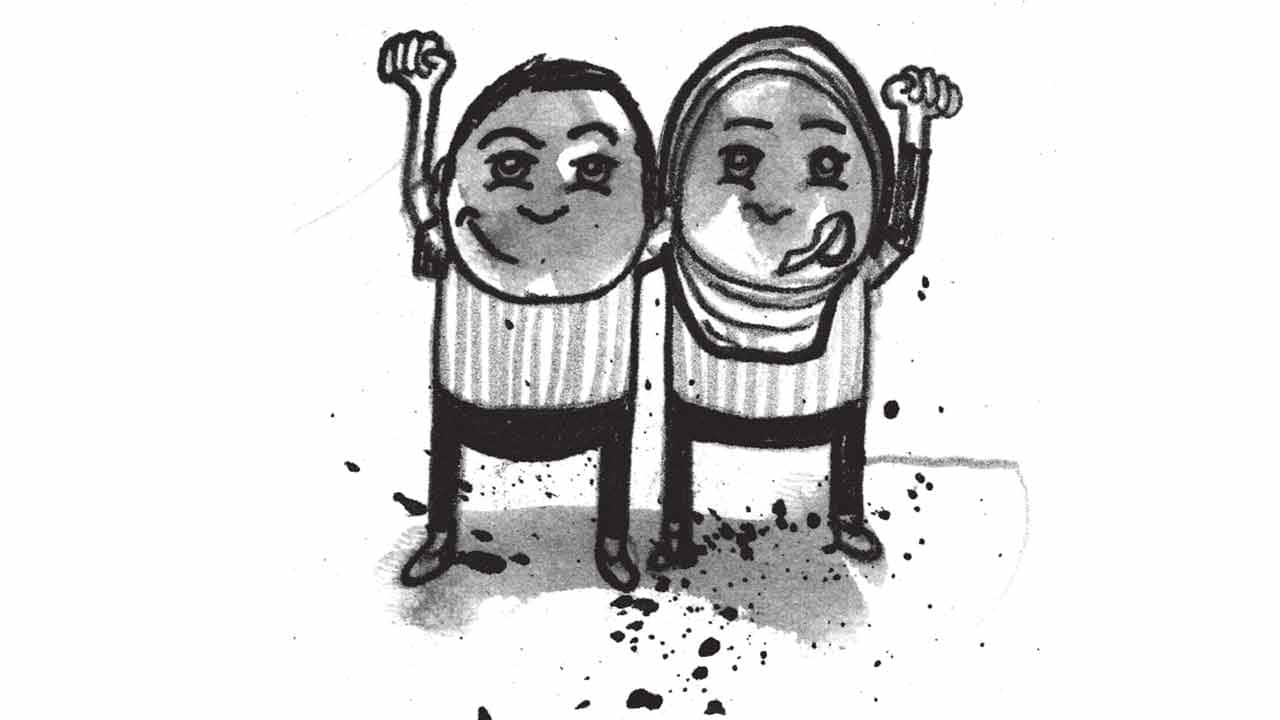This is one of several interviews from the SBS special feature 'Faces of the Rohingya'. Watch Dateline's investigation 'Myanmar's Killing Fields' at the end of the article.
Shawfikul Islam had ducked out for a little while between interviews, but he returns and signals to Kabir for a coffee. When it arrives, he stirs the condensed milk from the bottom of the cup and talks about himself, quietly.
When he was eight-years-old, he moved with his family from Rakhine State to Yangon. He had to travel in disguise, wearing thanaka on his cheeks - a white makeup common for women and children in Myanmar - with a Buddhist friend who pretended to be his father.

At that time, Shawfikul explains, middle-class Rohingya families could live safely in the capital by bribing their way out of problems. He was able to go to school and university, but he had a habit of talking back against slurs and discrimination.
“I was always in trouble,” he says.
Eventually, following a serious dispute, he had to leave and seek asylum. Now, he is 31-years-old and he’s been in Australia for five years, but his wife, six-year-old son, his parents and siblings remain in Myanmar.
His grandmother is in a refugee camp in Bangladesh; a few months ago they spoke by video call.
“I couldn’t control my tears,” he says. “I don’t make video calls anymore.”
In Melbourne, Shawfikul heard about Rohingya labourers who were being paid poorly, so he contacted the National Union of Workers to see if it could help. Now he works for the union, organising farm and poultry workers like Ash to demand their rights.
Shawfikul uses his spare time, and his English, to assist the community however he can. It keeps him occupied.
Sometimes, after translating for these interviews, he fell silent - people’s suffering is too heavy and he cannot carry his own grief.
READ MORE: Faces of the Rohingya
This week he took three days off work, to try to cope. But his father always helped people in need and he is trying to follow his father’s example.
“Wherever you go, if you say you’re Rohingya, you will be looked upon as a victim. This has been going on for generations,” he says. We can’t wait for solutions to be given to us, we have to build ourselves up.”
Here in Australia, Shawfikul sees that the Rohingya community has real opportunities. And even in Bangladesh he believes that if only ten people in a hundred can get educated, then they, in turn, can educate hundreds.
“It will take decades, but I have hope and confidence that we will be looked upon as human - just like the next person.”
Watch Dateline's 'Myanmar's Killing Fields' below.

